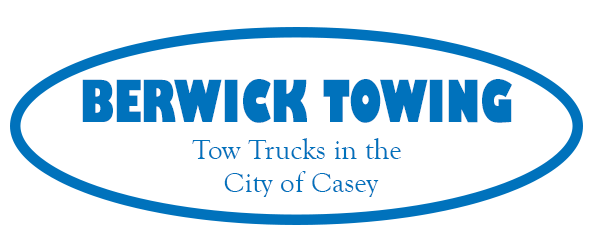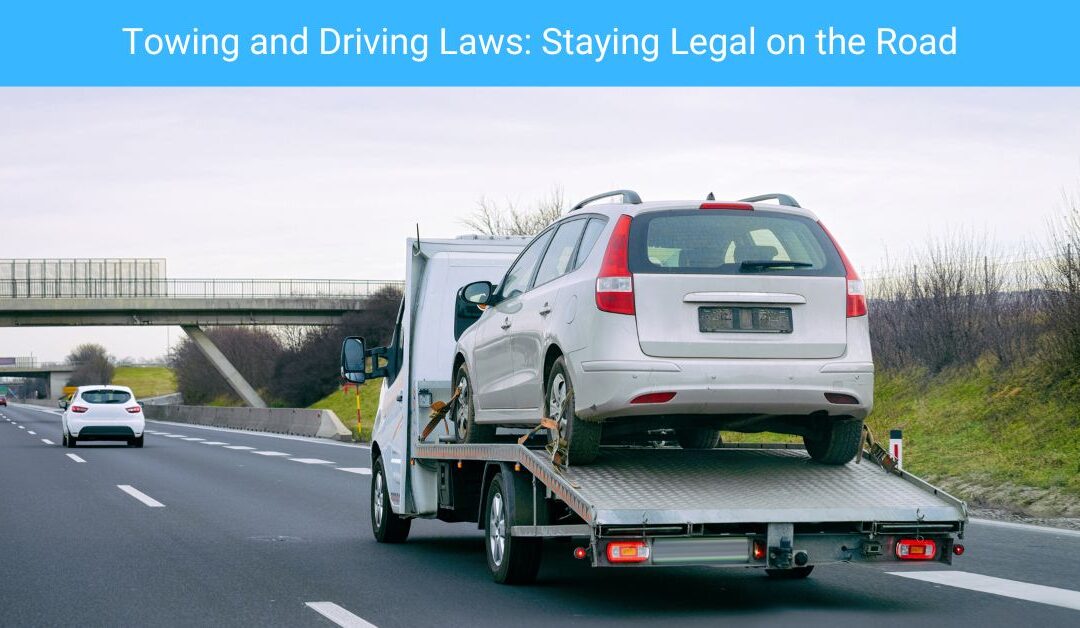Towing is an essential service that helps drivers in various situations, from accidents to vehicle breakdowns. However, when towing a vehicle, there are specific legal considerations that must be followed to ensure both the towing company and the driver remain compliant with road laws. These regulations vary by location, but there are general rules that apply universally to ensure safety and prevent legal complications. Understanding towing and driving laws is crucial for anyone who operates a tow truck or is involved in a towing operation.
Understanding Towing Regulations
Towing regulations are in place to promote safety and ensure that vehicles are transported legally. In many countries and states, towing laws are defined by weight limits, safety standards, and licensing requirements. For example, the type of tow truck used must comply with local vehicle weight laws. The towing company must also ensure the vehicle being towed is properly secured to prevent it from detaching during transportation. Failure to comply with such regulations can lead to fines or accidents caused by improperly secured loads. Additionally, specific routes may be designated for towing vehicles, especially in urban areas, to prevent congestion or accidents.
Licensing and Insurance Requirements
Towing companies are required to have the necessary licenses and insurance to operate legally. The licenses often include special certifications for towing operators, ensuring they understand the safety protocols for handling vehicles in different situations. Tow truck drivers may also need specialized driving permits, as they are operating large vehicles that require specific skills, such as backing up large trucks and securing heavy loads. Insurance coverage is equally important, as it protects both the towing company and the customer in case of damages or accidents during the towing process. Without proper insurance, towing companies can face severe legal consequences.
Speed Limits and Road Restrictions for Towing Vehicles
When towing a vehicle, speed limits are one of the most critical considerations. In many places, towing vehicles have a reduced speed limit compared to regular traffic. This limitation is in place to reduce the risk of accidents, as towing a vehicle changes the dynamics of the vehicle’s handling, braking distance, and maneuverability. Additionally, some roads may have restrictions on certain types of vehicles, including tow trucks, especially in heavily populated areas or on narrow roads. Tow trucks may also be prohibited from traveling on specific bridges or tunnels if the vehicle exceeds certain weight restrictions. Understanding these rules ensures that towing companies and drivers stay legal while navigating these roads.
Legal Considerations for Towing Another Vehicle
When towing someone else’s vehicle, especially in cases where it has been abandoned or parked illegally, there are legal procedures that must be followed. Many regions require a specific type of documentation or authorization from the property owner or law enforcement before a vehicle can be towed. For example, towing a vehicle from private property often requires the consent of the property owner or a police request. If a vehicle is towed without proper consent or legal authorization, the towing company could face legal action. It’s essential for towing companies to maintain clear and accurate records of such tows to avoid legal disputes.
Consumer Protection Laws for Towing Services
In addition to the regulations governing the towing process itself, consumer protection laws are also important. These laws aim to prevent unfair business practices, ensuring that customers are treated fairly during the towing and impound process. For instance, if a vehicle is towed due to a parking violation or breakdown, the towing company must inform the vehicle owner about the location of their vehicle and how they can retrieve it. There are often laws in place regarding how much a towing company can charge for towing services and storage fees, ensuring these charges are reasonable and transparent. Towing companies must follow these consumer protection laws to avoid lawsuits or reputational damage.
Towing and Driving Laws for Personal Vehicles
Drivers who tow their own vehicles, whether with a trailer, dolly, or hitch, must adhere to specific towing laws. First and foremost, the vehicle doing the towing must be adequately equipped to handle the load, which means ensuring it has the proper towing capacity, a secure hitch, and the necessary braking system for heavier tows. Some laws require drivers to have a specific driver’s license endorsement if they are towing a trailer or large vehicle. Additionally, the towing vehicle and the towed vehicle must meet legal safety standards, including working lights, brake lights, and turn signals. Drivers should also be aware of local road laws, such as the proper use of chains, towing mirrors, and weight limits, which vary depending on the jurisdiction.
Safety Equipment and Vehicle Inspection
Both the tow truck and the towed vehicle must meet specific safety standards, which can vary depending on the jurisdiction. This includes checking that the towing equipment, such as the hitch, cables, or chains, is secure and that safety lights are in working order. The towed vehicle must also be inspected for proper tire pressure and secure attachments. Some regions require tow trucks to be equipped with specific safety gear, such as reflective vests or hazard signs, to increase visibility on the road, especially in low-light conditions or during adverse weather. Regular inspections of both the tow truck and the towed vehicle are crucial in ensuring compliance with safety laws and avoiding accidents.
Conclusion
Towing and driving laws play an essential role in maintaining road safety and ensuring that vehicles are transported legally. Whether you are a towing professional or a driver towing a vehicle yourself, it’s crucial to stay informed about the regulations that govern the towing process. Understanding licensing, speed limits, road restrictions, consumer protection, and safety equipment requirements helps ensure that you remain compliant with the law. Following these guidelines not only keeps you legal but also ensures the safety of everyone involved in the towing process, from the driver to the vehicle owner. Staying up-to-date with towing laws can help prevent costly fines and accidents while promoting a safer driving environment for all.
If you are in Narre Warren, Victoria 3805, Australia, and looking for a car removal service, this is the best way to visit us.
Contact Us
Berwick Towing & Transport
27B William Rd
Berwick VIC 3806
(03) 7035 7815
www..berwick-towing.com.au/

